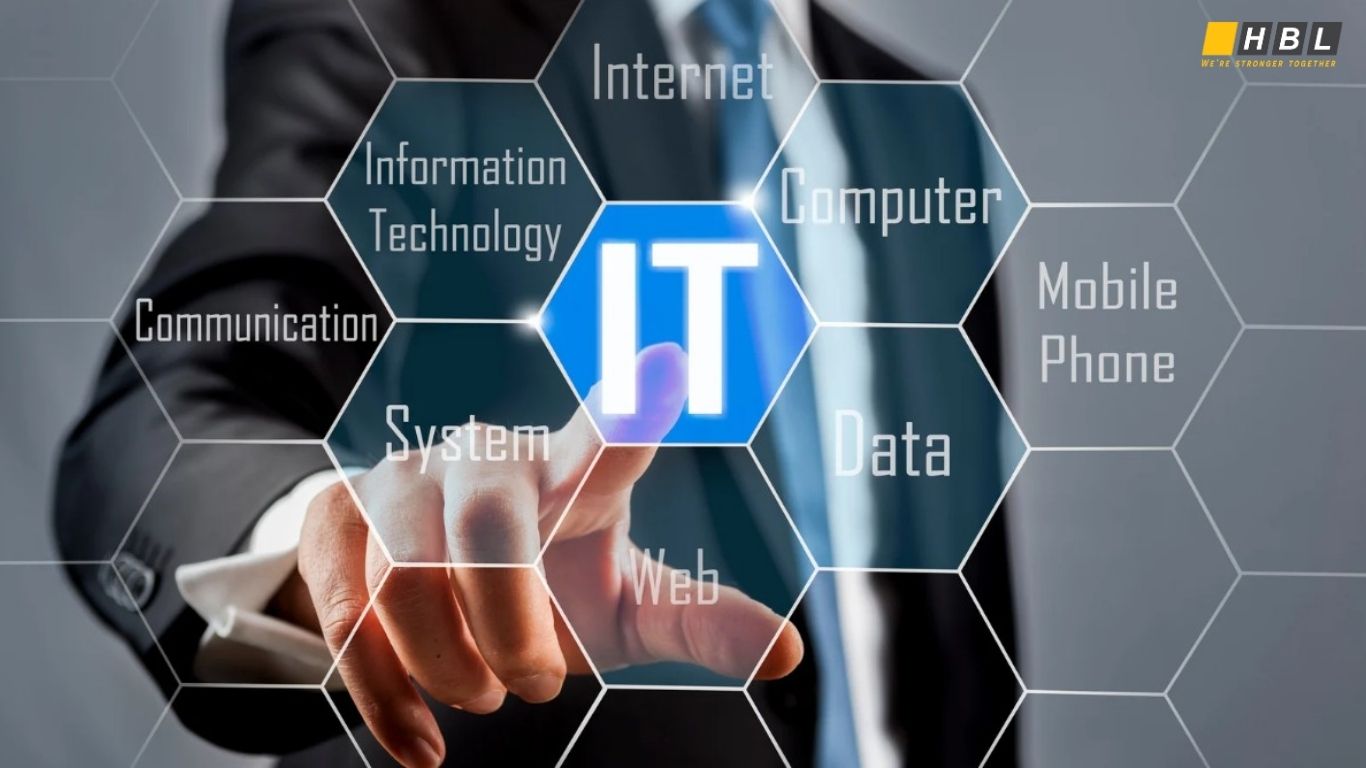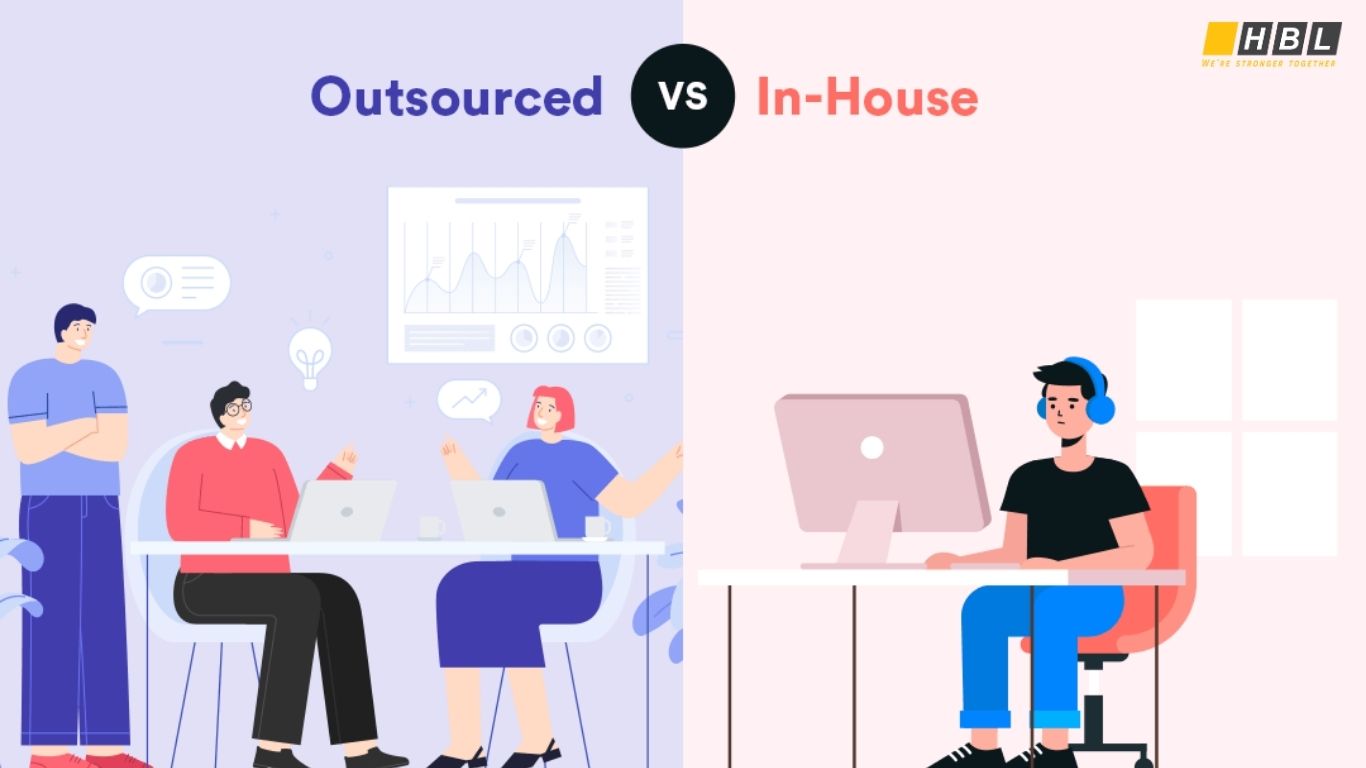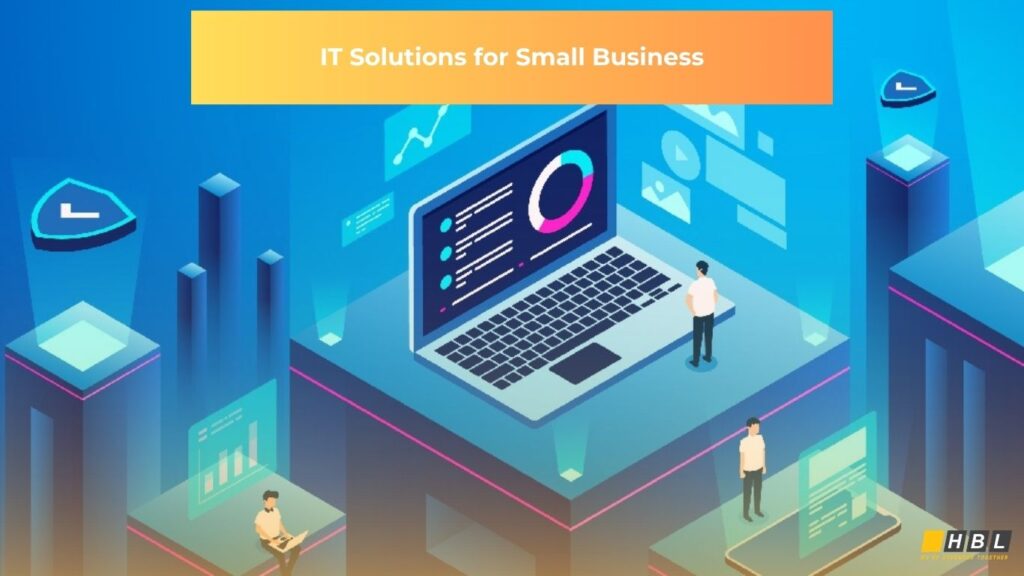In today’s hyper-connected world, leveraging the right IT solutions can make or break a small business. From managing costs and optimizing processes to securing data and meeting customer expectations, information technology (IT) plays a pivotal role in their success or failure. However, many SMBs still struggle to find and implement the right IT solutions for small business.
This article will delve into the most essential IT solutions for small businesses, helping you understand their benefits, implementation strategies, and key considerations to optimize your business’s efficiency and growth.
Small Businesses and Modern Technology Challenges
Small businesses, whether they are promising startups or traditional family-owned companies, are the backbone of the economy. However, they often face significant barriers when it comes to adopting and managing technology:
1.Limited Budgets and Lack of In-House IT Resources
Unlike large corporations with ample budgets and extensive IT departments, SMBs typically operate with tighter financial constraints and often cannot afford to hire a dedicated in-house IT team. This leads to a lack of specialized expertise, delays in troubleshooting, and missed opportunities for technology upgrades.
2. The Growing Threat of Cyberattacks
Cyberattacks are becoming increasingly sophisticated and indiscriminate regarding business size. SMBs are often easier targets due to weaker security systems and a lack of cybersecurity awareness. A single security breach can result in severe financial losses, reputational damage, and compromised customer data.
3. The Need for Process Optimization and Increased Productivity
To compete effectively, SMBs need to work smarter, not just harder. Optimizing business processes through technology can help save time, reduce errors, and boost employee productivity.
4. The Importance of Scalability
As a business grows, its IT needs evolve. IT solutions for small business must be highly scalable, allowing the business to easily increase or decrease resources without major disruptions or sudden cost spikes.

Essential IT Solutions for Small Business
To overcome these challenges, SMBs need to invest in strategic IT solutions. Here are the most crucial areas:
1. Managed IT Services: Beyond Just Support
Managed IT Services involve outsourcing your day-to-day IT operations to an external provider. Instead of just calling IT when something breaks, a managed service provider (MSP) proactively monitors, maintains, and updates your systems, helping to prevent potential issues before they arise.
Benefits:
- Cost Savings: Fixed monthly costs are often lower than maintaining an in-house IT team.
- Access to Expertise: Gain access to a team of experts with diverse experience.
- Improved Uptime: Minimize downtime due to IT malfunctions.
- Enhanced Security: Implement robust security solutions and continuous updates.
- Focus on Core Business: Free yourself from the burden of IT management.
2. Cloud Computing Solutions: Flexible Power
Cloud computing allows businesses to store data and run applications over the internet instead of on local servers. This is one of the most transformative IT solutions for small business, offering unparalleled flexibility and cost efficiency.
Benefits of Cloud Computing for SMBs:
- Reduced Upfront Costs: No large investments in hardware and infrastructure.
- Scalability: Easily adjust resources to match growth demands.
- Anytime, Anywhere Access: Employees can work remotely, increasing flexibility.
- Enhanced Data Security: Major cloud providers often have stronger security measures.
- Easy Backup and Recovery: Data is automatically backed up and can be quickly restored.
Popular Cloud Services:
- SaaS (Software as a Service): Software applications delivered over the internet (e.g., Microsoft 365, Google Workspace, Salesforce).
- PaaS (Platform as a Service): A platform for developing, running, and managing applications without managing the underlying infrastructure (e.g., Google App Engine, AWS Elastic Beanstalk).
- IaaS (Infrastructure as a Service): Virtualized computing infrastructure such as servers, networks, and storage (e.g., Amazon Web Services (AWS), Microsoft Azure, Google Cloud Platform (GCP)).
3. Cybersecurity: Protecting Your Digital Assets
Cybersecurity is paramount for SMBs. A single security vulnerability can lead to devastating consequences.
Common Threats and Prevention Strategies:
- Phishing: Deceptive email attacks. Requires employee training and smart email filters.
- Malware/Ransomware: Malicious software or extortionware. Needs antivirus software, firewalls, and regular data backups.
- DDoS (Distributed Denial of Service): Overwhelming a system to make it unavailable. Utilize DDoS protection services.
- Human Error: Mistakes made by employees. Cybersecurity awareness training is crucial.

Comprehensive Security Solutions:
- Firewall: Protects the internal network from unauthorized access.
- Antivirus & Anti-malware Software: Detects and removes threats.
- Data Backup & Recovery Solutions: Ensures data isn’t lost.
- Data Encryption: Protects data both in transit and at rest.
- Multi-Factor Authentication (MFA): Adds an extra layer of security to accounts.
- Password Management: Use strong passwords and password managers.
- Employee Training: Increase awareness of threats and best security practices.
4. Data Backup & Recovery Systems: Peace of Mind Against Risks
Data loss can occur due to various reasons: hardware failure, cyberattacks, natural disasters, or human error. An effective data backup and recovery strategy is vital to ensure business continuity.
- Regular Backups: Automatically back up critical data to the cloud or external devices.
- Recovery Testing: Periodically test your recovery process to ensure it works effectively when needed.
- 3-2-1 Backup Rule: At least 3 copies of your data, on 2 different media types, and 1 copy off-site.
5. Communication & Collaboration Tools: Connecting Without Limits
These tools help employees work together more effectively, regardless of their geographical location.
- Business Email: (e.g., Microsoft Outlook, Gmail for Business)
- Online Meeting Platforms: (e.g., Zoom, Microsoft Teams, Google Meet)
- Project Management Tools: (e.g., Trello, Asana, Jira)
- Team Messaging Apps: (e.g., Slack, Microsoft Teams)
6. Customer Relationship Management (CRM) & Accounting Software: Optimizing Operations
These software solutions help automate and optimize core business processes.
- CRM (Customer Relationship Management): Manages customer interactions, tracks sales, and improves customer service (e.g., HubSpot, Zoho CRM, Salesforce Essentials).
- Accounting Software: Automates accounting tasks, manages finances, and generates reports (e.g., QuickBooks, Xero, Sage).
- Human Resources Management (HRM) Software: Manages employee information, time tracking, and payroll.
Adopting advanced technology helps small businesses offer better services, reach a wider customer base, and respond more quickly to market changes, creating a competitive edge.
IT solutions, especially CRM and data analytics tools, provide deep insights into business operations, helping managers make data-driven decisions.
IT Outsourcing vs In-house: Which Is Right for You?

| Criteria | In-house Team | IT Outsourcing |
| Cost | High | Lower |
| Flexibility | Low | High |
| Talent access | Limited | Global |
| Speed | Slower | Faster |
| Focus on core | Distracted | Streamlined |
Pro tip: Many small businesses combine in-house project leads with outsourced technical teams to balance control and efficiency.
How to Choose the Right IT Solutions Provider for Your Small Business
Selecting the right IT partner is the most crucial step:
1. Assess Your Specific Business Needs
Every business has unique requirements. Clearly define the IT problems you’re facing and the goals you want to achieve through IT solutions.
2. Look for Experience and Expertise
Prioritize providers with experience working with small businesses in your industry. Does their technical team have the necessary expertise to address your challenges?
3. Support Capabilities and Customer Service
24/7 support, fast response times, and a friendly, professional team are crucial. Look for reviews from current clients.
4. Cost and Pricing Models
Ensure transparent pricing models that fit your budget. Compare quotes from multiple providers to get a comprehensive overview.
5. Reputation and Certifications
Check the provider’s reputation, security certifications (e.g., ISO 27001, CMMI), and technology partnerships (e.g., Microsoft Partner, AWS Partner).
The Future of IT Solutions for Small Business: Emerging Trends
To remain competitive, small businesses also need to pay attention to emerging technology trends:
1. Artificial Intelligence (AI) and Machine Learning (ML)
AI and ML can help automate repetitive tasks (e.g., customer support chatbots, sales data analysis, market trend forecasting), optimize processes, and make smarter decisions.
2. Internet of Things (IoT)
IoT devices can collect data on business operations (e.g., inventory management, equipment tracking), helping to improve efficiency and reduce costs.
3. Blockchain
Blockchain technology offers high security and transparency in transactions, with potential applications in supply chain, finance, or data management.
4. DevOps and Automation
Automating software development and deployment processes (DevOps) helps small businesses launch products and services faster, responding more flexibly to the market.
HBLAB – Your Trusted Partner for Comprehensive IT Solutions for Small Business
In the journey of finding optimal IT solutions for small business, HBLAB proudly stands as a strategic partner delivering exceptional value. With proven experience and capabilities, we are committed to helping your business achieve sustainable growth in the digital era.
Why choose HBLAB?
- Extensive and Multinational Team: With over 630+ talented employees and headquarters in Vietnam, alongside branches in Australia, Singapore, Japan, and Korea, HBLAB is equipped to meet all project requirements, from small to large scale, while understanding diverse international market specifics.
- Global Communication: Our team members possess strong English communication skills, ensuring seamless and effective exchanges with international clients.
- Expert Quality: Over 30% of our workforce consists of senior-level employees with more than 5 years of experience tackling complex and demanding projects, delivering high-quality and sustainable solutions.
- Flexible Engagement Models: Beyond the traditional BOT (Build-Operate-Transfer) model, HBLAB offers diverse collaboration options such as Offshore, Onsite, and Dedicated Teams, perfectly suiting various client needs and strategies.
- Optimized Costs: HBLAB provides high-quality human resources at reasonable costs, up to 30% lower than in local countries. This helps small businesses optimize their IT budget while still achieving outstanding results.
- Diverse Programming Skills: Our team boasts diverse programming skills across multiple platforms and languages, ready to develop custom solutions, from web and mobile applications to complex systems.
- Strict Security Compliance: HBLAB adheres rigorously to Security requirements and has achieved CMMI Level 3 certification, affirming our commitment to protecting client data and systems to the highest standards.

HBLAB is not just a service provider; we are a collaborative partner, working alongside you to shape your technological future, ensuring your small business not only survives but thrives.
Conclusion
In the modern business world, IT solutions for small business are no longer an option but a vital necessity. From optimizing processes and enhancing security to boosting productivity and competitive advantage, information technology is the key to achieving sustainable growth. By investing wisely in the right solutions and choosing a trustworthy IT partner like HBLAB, small businesses can confidently overcome any challenge and achieve success.
Contact us for a free consultation!
See more:
– Healthcare App Development: Revolutionizing Patient Care and Medical Practices
– Build Operate Transfer in IT: 5 Bold Advantages for Outsourcing

